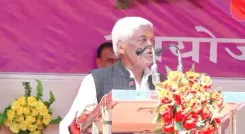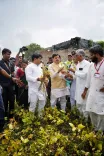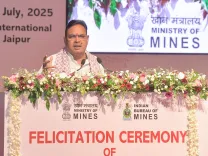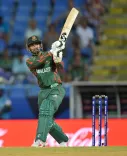Is Mobocracy Taking Over 'New Bangladesh'?
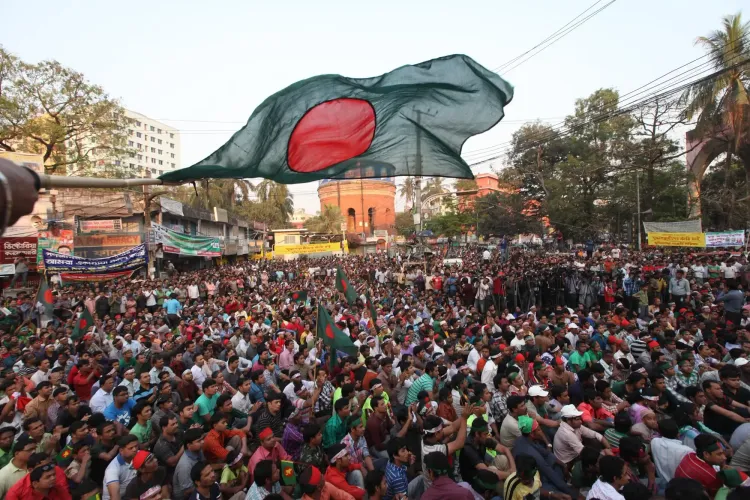
Synopsis
Key Takeaways
- Bangladesh is facing a rise in mob rule that threatens democracy.
- Radical Islamist groups are gaining influence and targeting secular values.
- Women and religious minorities are disproportionately affected by this violence.
- The interim government has failed to address these issues effectively.
- The situation may worsen as the country approaches elections.
New Delhi, Sep 11 (NationPress) Following Sheikh Hasina's departure from the country on August 5 of last year, forces opposing her regime proclaimed that Bangladesh had reclaimed its independence. Over the past year, these groups have been actively working to assert that true liberation will only be realized in 2024, often framing the upcoming uprising as more significant than the 1971 Liberation War.
In the wake of Hasina's ousting, Bangladesh encountered a profound law and order crisis, a predictable outcome of such a sudden political shift. This created a political vacuum that had not been experienced by the nation before, allowing mobs, predominantly comprising Islamist extremists, to rise to prominence.
Rather than experiencing genuine democracy, Bangladesh is now engulfed in mobocracy, as law enforcement struggles continuously to uphold order in the nation. Meanwhile, the interim government has merely offered empty promises of justice without any tangible results.
A closer examination of the escalating mob culture in Bangladesh reveals its frequent targets—secularists, women, and religious minorities.
The resurgence of Islamist factions is one of the many consequences of the interim government, and the Bangladeshi populace has often found itself on the receiving end of this aggression.
On one side, banned organizations like Hizb ut-Tahrir have been openly rallying in Dhaka, calling for the establishment of a Caliphate in Bangladesh.
Conversely, groups such as Towhidi Janata, comprised of radical Muslims, have been disrupting public spaces under the pretense of protesting against what they deem 'un-Islamic' activities. Notoriously, these factions have sought to suppress social and cultural events celebrating Bangladesh's secular identity, including the Book Fair, Basant Utsav, Lalon Mela, and Pohela Baishakh.
Women's participation in public life, which these Islamists disdain, has also come under their attack. From advocating for the return of the purdah system to assaulting women for not adhering to Islamic dress codes, the new mob culture in Bangladesh has proven to be anti-women and anti-secular.
The situation for religious minorities has become particularly dire. With law enforcement compromised, violent mobs justify their actions as a means of restoring justice. Since August 5 of last year, religious minorities have faced systematic targeting, exacerbating their already vulnerable status.
According to a report from the Bangladesh Hindu Buddhist Christian Unity Council in July, there have been a staggering 2,442 incidents of communal violence since last August, with over a hundred attacks on Ahmadiyas and Sufis, who are considered 'heretics' by Islamists.
Despite the interim government's failure to implement effective measures to curb mob violence, they have downplayed this systemic violence as mere 'political attacks'. Mob 'justice' has become increasingly tolerated in New Bangladesh, especially when the target is the Awami League and its affiliates.
The destruction of murals, paintings of Sheikh Mujibur Rahman, the demolition of his private residence at 32 Dhanmondi, and attempts to desecrate the graveyard of Sheikh Mujibur Rahman in Gopalganj have gone largely uncondemned by the chief advisor. Instead, a narrative blaming 'external forces' for these mob attacks has taken root.
The recent shocking acts of vandalism at shrines believed to be carried out by members of Towhidi Janata in Rajbari and Rajshahi further illustrate the interim government's silence and tolerance of mob culture, paving the way for the rise of mobocracy in the country.
The horrifying act of exhuming and burning the body of self-proclaimed spiritual leader Nurul Haque, known as Nurul Pagla, was so chilling that even Islamic parties, who usually offer silent support to these groups, have condemned it. The attack on the Aziz Bhandari Khanka Sharif's shrine in Rajshahi occurred on the same day as the violence in Rajbari, despite police presence.
The spiritual leader of the shrine has alleged that police failed to act against mob violence, even after receiving prior warnings from intelligence agencies.
The advisor responsible for restoring law and order in the country has consistently denied that Bangladesh's law and order situation has worsened, instead claiming improvements despite contradicting reports. However, he recently admitted that the situation has become 'somewhat worse' in light of recent events.
The interim government, which was established with the primary goal of restoring law and order, has utterly failed in this mission. As the country prepares for national elections in the near future, it is evident that the inefficiency and deliberate indifference of the interim government have pushed 'new' Bangladesh towards mobocracy, possibly beyond the point of no return.

